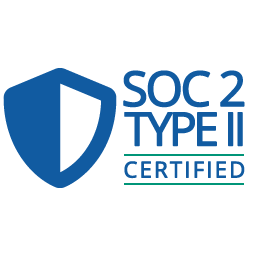Cookie Policy
This Cookie Policy explains how Cargio ("Cargio", "we", "us" and "our") use cookies and similar technologies when you visit our website and/or when you interact with Cargio online advertisements or marketing emails (the Sites, Apps and associated services are collectively referred to as the "Services"). It explains what these technologies are and why we use them, as well as your rights to control our use of them.
In some cases, we may use cookies and similar technologies to collect personal information, or information that becomes personal information if we combine it with other information. In such cases, the Cargio Global Privacy Policy will apply in addition to this Cookie Policy.
If you have any questions about our use of cookies or other technologies, please submit your request via our Support Portal.
1. WHAT ARE COOKIES?
Browser cookies are text files with small pieces of data downloaded onto your computer or mobile device. Browser cookies and other similar technologies (collectively called “Cookies” in this Cookies Policy) enable websites and apps to store information or facilitate access to information stored on your device to enable certain features and distinguish you from other visitors. These technologies are used by most website and app providers to let users navigate between pages efficiently, ensure security of the webpage or application, understand how their websites are used, remember user preferences and generally improve the user experience. More information on cookies and their use can be found at www.aboutcookies.org or www.allaboutcookies.org.
Cookies set by the website operator are called "first party cookies" and cookies set by parties other than the website operator are called "third party cookies”. You should check the third-party's website for more information on how they use cookies.
2. WHAT DO WE USE COOKIES FOR?
When you access our Site and Services, we, or companies we work with, may place cookies and similar technologies (such as web beacons, software development kits (“SDKs”), pixels, APIs, mobile advertising identifiers, tags and local storage) on your computer or other device.
We use cookies for the following purposes:
Strictly Necessary purposes
Strictly Necessary Cookies are essential for our Services to function and therefore cannot be switched off. They are usually only set in response to actions made by you which amount to a request for services, such as setting your privacy preferences, logging in, or filling in forms. These also include cookies we may rely on for security purposes, such as to prevent unauthorized access attempts. You can set your browser to block or alert you about these cookies at any time, but some features of our Services may not work.
Performance purposes
We use these Cookies to count visits and traffic sources so we can measure and improve the performance of our Services. They help us to know which pages are the most and least popular and see how visitors move around the Site and Apps, and to resolve any errors that occur on the Services quickly to provide you with a better experience.
Functional purposes
We use these Cookies to remember the choices you make (e.g. country or language selection) and to tailor our Services to your preferences.
Targeting purposes
Cargio uses first party and third party cookies for advertising and measurement purposes.
These advertising cookies are used to serve personalized advertising on our Services or to serve advertising on other third party sites that may be relevant to you or your interests. This means that after you have been to our Services, you may see advertisements about our Services elsewhere on the Internet.
These cookies are also used to help measure the effectiveness of advertising campaigns. The information collected through this process does not enable these third party service providers to identify your name, contact details or other personal information that directly identifies you.
Our third-party service providers may place cookies on your browser or device to help us keep our Services safe and secure, promote our Services on other apps and websites, and enable us, our advertisers and measurement partners to measure the effectiveness of advertising campaigns.
3. HOW LONG WILL COOKIES STAY ON MY BROWSING DEVICE?
The length of time a cookie will stay on your browsing device depends on whether it is a "persistent" or "session" cookie. Session cookies will only stay on your device until you close your browser. Persistent cookies are set to automatically expire after a defined duration (for example, a few days, weeks or months).
You can prevent the setting of cookies by adjusting the settings on your browser (see your browser Help for how to do this).
You can control the use of cookies at the individual browser level, and can even block or reject all or some cookies by activating the relevant setting on your browser. If you do block or reject cookies (including essential cookies), you may still be able to access and use the Site and/or Platform, but your ability to use some of their respective features and areas, together with the services that you connect to through them, may be limited or may simply not function properly.
Be aware that disabling cookies will affect the functionality of this and many other websites that you visit. Disabling cookies will usually result in also disabling certain functionality and features of the Site. Therefore it is recommended that you do not disable cookies. If you create an account with us then we will use cookies for the management of the signup process and general administration.
4. WILL THIS COOKIE POLICY BE UPDATED?
We may update this Cookie Policy from time to time to reflect, for example, changes to the cookies we use or for other operational, legal or regulatory reasons. You can also revisit this page if you wish to keep yourself informed.



 Deutsch
Deutsch Français
Français Italiano
Italiano Español
Español Português
Português Russian
Russian 日本語
日本語 中國人
中國人 हिंदी
हिंदी Tiếng Việt
Tiếng Việt



